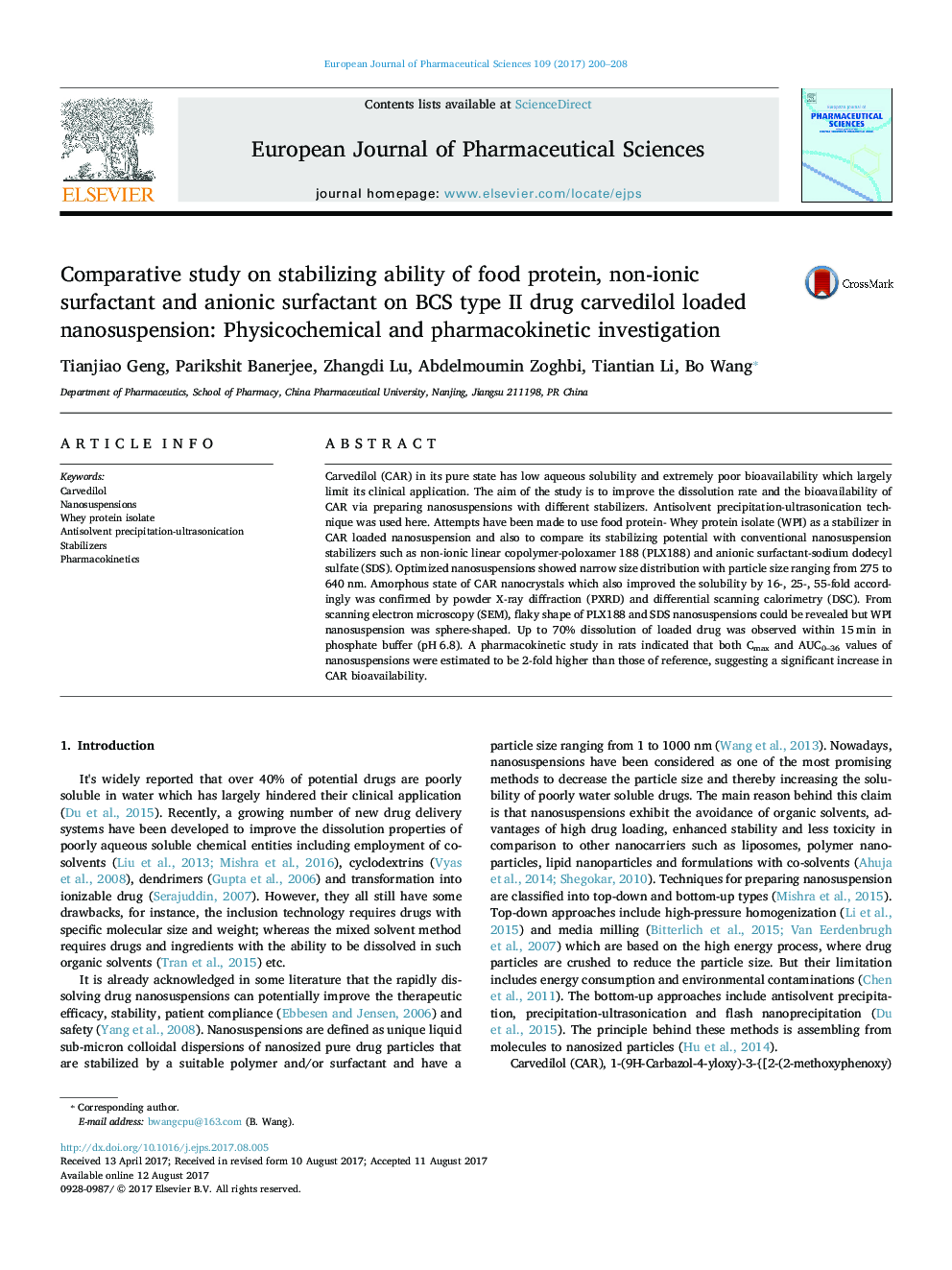| Article ID | Journal | Published Year | Pages | File Type |
|---|---|---|---|---|
| 5547545 | European Journal of Pharmaceutical Sciences | 2017 | 9 Pages |
Carvedilol (CAR) in its pure state has low aqueous solubility and extremely poor bioavailability which largely limit its clinical application. The aim of the study is to improve the dissolution rate and the bioavailability of CAR via preparing nanosuspensions with different stabilizers. Antisolvent precipitation-ultrasonication technique was used here. Attempts have been made to use food protein- Whey protein isolate (WPI) as a stabilizer in CAR loaded nanosuspension and also to compare its stabilizing potential with conventional nanosuspension stabilizers such as non-ionic linear copolymer-poloxamer 188 (PLX188) and anionic surfactant-sodium dodecyl sulfate (SDS). Optimized nanosuspensions showed narrow size distribution with particle size ranging from 275 to 640Â nm. Amorphous state of CAR nanocrystals which also improved the solubility by 16-, 25-, 55-fold accordingly was confirmed by powder X-ray diffraction (PXRD) and differential scanning calorimetry (DSC). From scanning electron microscopy (SEM), flaky shape of PLX188 and SDS nanosuspensions could be revealed but WPI nanosuspension was sphere-shaped. Up to 70% dissolution of loaded drug was observed within 15Â min in phosphate buffer (pHÂ 6.8). A pharmacokinetic study in rats indicated that both Cmax and AUC0-36 values of nanosuspensions were estimated to be 2-fold higher than those of reference, suggesting a significant increase in CAR bioavailability.
Graphical abstractDownload high-res image (241KB)Download full-size image
